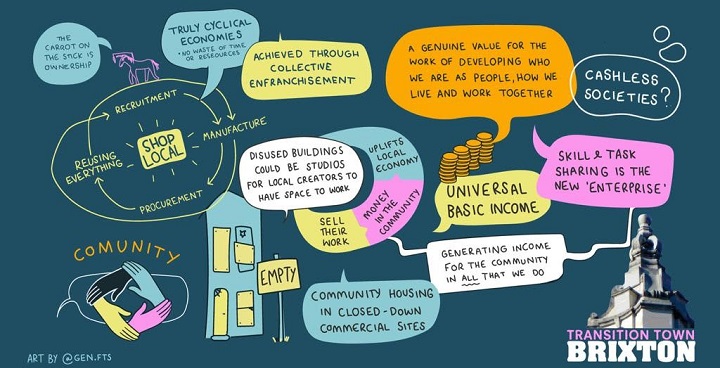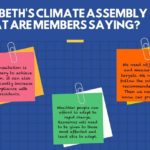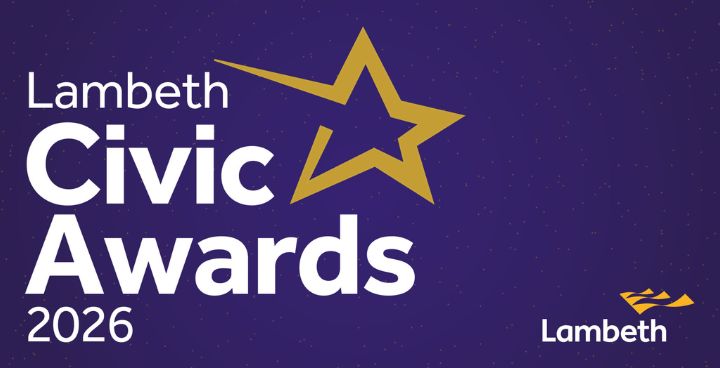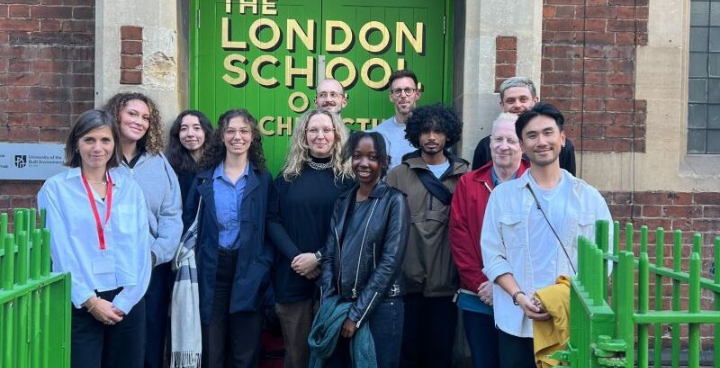
Over the last two weeks, during Phase 2 of Lambeth’s Climate Assembly, 50 residents have been discovering solutions to tackling carbon emissions in the borough across three themes: transport, businesses, and homes. During Phase 1, assembly members learned about the climate crisis and possible pathways to get to net zero which also provide co-benefits of improved livelihoods and reduced inequality. The outcome of these learning and discovery sessions during Phase 3 will be to recommend a set of principles, guidelines and actions for a borough-wide climate action plan.
Net zero
What is net zero? Net zero refers to a state in which the greenhouse gases going into the atmosphere are balanced by removal out of the atmosphere. The term net zero is important because – for CO2 at least – this is the state at which global warming stops. Read more FAQs
Coming together in discussion workshops
Across Phase 2, the Assembly have spent Thursday evenings listening to presentations from experts working on climate change and Tuesday evenings virtual breakout rooms engaged in structured discussion exploring questions such as:
- How should Lambeth council, residents and businesses act in response to climate change?
- How do these responsibilities interact?
- How can we ensure fairness is at the heart of this?
Responses ranged from specific ideas such as….
“We need more community food growing gardens in council estates”…
…to powerful statements about fair consultation over the long term…
“We want more platforms for residents to communicate with the council to ensure change and fairness”
Hearing balanced evidence
As with all citizens’ assemblies, in addition to giving a diverse group of people the time and space to come up with their preferred solutions to complex problems, hearing from most affected groups is crucial to making sure the final recommendations are fair and balanced. As part of this, Lambeth’s Climate Change team hosted two focus groups with people with disabilities and young people to understand their hopes and fears about the climate crisis – the findings will be presented to the assembly. Two youth councillors, Prisca and Jeminat from Lambeth’s Youth Council, presented their responses directly the citizens’ assembly, urging members to consider environmental justice between and within generations.
“We can’t forget about the people who have been in Lambeth forever. Even if we can’t create a perfect utopia, we can create one that’s close to it. We would like the citizens’ assembly to listen to young people and include us in decision-making because we are the future.” Lambeth Youth Council
As well as hearing about lived experiences, listening to evidence from outside speakers about what can and is already being done to get to net zero helps assembly members develop radical yet realistic recommendations. To frame their ideas on transport and energy use, they heard quick fire presentations on their top suggestions from 7 expert speakers.
- On transport, Tim Schwanen, Director of the Transport Studies at Oxford University, presented his top priorities for transforming travel – from a situation where the petrol or diesel car is the default option to walking and cycling. He ended his speech with strong message on flying: “Even those of us who cycle may be ruining their entire carbon budget by taking a couple of long-haul flights” Tim Schwanen
- Sam Longhorn, Head of Corporate Environment at Transport for London and Rob Whitehead, from the Centre for London, set Tim’s recommendations in the London context, urging assembly members to consider the co-benefits as well as the challenges for particular groups in our city. “We know that transport accounts for about a quarter of emissions in London and this figure is not budging as it is in other areas…. We have to think – I am traffic – our choices create traffic.” Rob Whitehead
- On energy use in the home and for businesses – making up the majority of emissions in the borough – assembly members heard from 4 expert speakers. Sam Kimmins, Head of RE100 at The Climate Group and Lauren Snoxell, Senior Policy Researcher at Citizens’ Advice, spoke about policy recommendations with Sam focussing on businesses and governments and Lauren on individuals. Members then heard from practitioners Afsheen Rasid, Co-Founder of Repowering London and Matt Copeland from Action on Warm Homes about empowering the most vulnerable in society to make change.
Learning from local change-makers
In the final speaker session, assembly members heard from inspiring organisations on their doorsteps in Lambeth. Firstly, Rebecca Trevalyan, co-founder of Library of Things spoke about switching to a local circular economy. Then volunteer directors Kate Crawford and Nick Anim from Transition Town Brixton, discussed their approach to visioning and making Lambeth fairer, greener and more cooperative. They shared examples of their visions made real including Lambeth Community Solar, the Brixton Pound, the Remakery and Incredible Edible. You can watch their ‘What If’ video here!
This week, assembly members will be bringing everything they have heard and discussed together in their recommendations in the final Phase 3.




